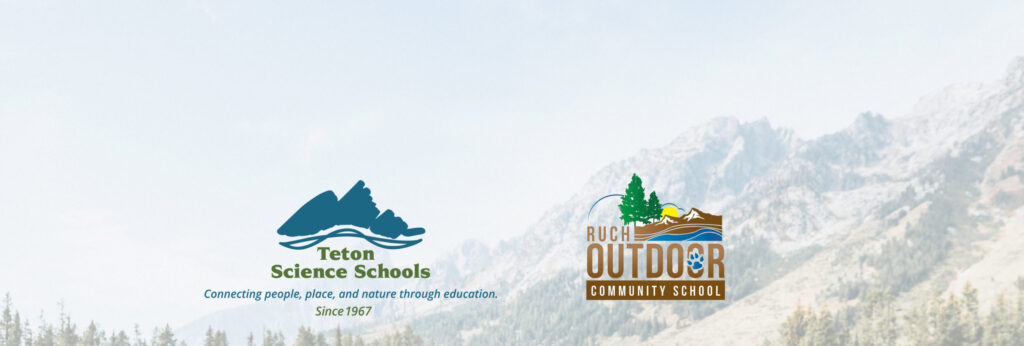Finding Our Place at Ruch Outdoor
Written by Kim Neiswanger, First Grade Teacher, Ruch Outdoor Community School – Originally published in Applegater, an Oregon-based Community Newsmagazine
Community SchoolWith a commitment to help students find a sense of purpose and belonging through a deeper connection with the community, Ruch Outdoor Community School has been following a place- based education model. For professional development and support, we have partnered with Teton Science Schools’ Place Network. The Teton network partners with rural schools to provide the kind of education that will increase student engagement, build character, have an impact on the community, and improve learning outcomes while celebrating the unique differences of every community.
Many of our classrooms have already started projects rooted in the principles of place-based education.
Ms. N’s first-grade students’ project is to set up a lemonade stand. The inspiration for this project came from the middle- school students’ Wednesday pizza sales, which earn money for their end-of-year overnight trip. Besides wanting to fill a need in the community, Ms. N’s students are hoping to make enough money to give to a charity in our community that supports people who are experiencing poverty. The money will also be used for something fun, such as going to a bowling alley. The students are hoping to expand their business to sell lemonade at local events. For this project, the students have set up companies to explore the areas of design, sales, marketing, and production.
Mrs. Brown’s first-grade students are doing a yearlong project of hiking the trails at Forest Park, in Jacksonville, several times throughout the year to observe the seasonal changes. They will document the changes and produce a display for the community during our Art and Science Fair at the end of the year.
Ms. Kriz and Mrs. Monk’s second- and third-grade students visited White Oak Farm to learn about sustainable straw-bale- and-cob building practices. They toured a straw-and-cob house built with beams from timber harvested off the land where the building stood. Students then helped build an eye-catching cob wall near our school garden.
[su_image_carousel source=”media: 12821,12817″ limit=”1″ captions=”yes” autoplay=”3″ image_size=”medium”]
Ms. Major and Ms. Barretto’s fourth- and fifth-grade students went to Quady North, where they explored the ecology of our vineyards here in the Applegate Valley. Students learned about the soil and the weather conditions that produce perfect grapes and had the opportunity to harvest some cab franc grapes at their peak. They even engaged in the process of stomping grapes and testing the juice for sugar content. They met the many people it takes to create a bottle of wine.
In partnership with the Southern Oregon University Masters of Science in Environmental Education program, sixth- graders from Mr. Pierson’s homeroom class participated in a three-day outdoor learning experience at Cantrall Buckley Park. Graduate students designed and delivered lessons around a variety of topics such as macroinvertebrates, soil sampling, and vegetation monitoring. On the final day, Ruch students planned and then implemented service-learning projects at the park—painting animal-proof trash cans, pulling invasive plants, and planting trees in the riparian zone along the Applegate River.
Mrs. Drane’s and Mr. Fox’s seventh- and eighth-grade students learned about our local habitats and camped overnight in the large tent structures at Pacifica Gardens. They made baskets out of pine needles, created ceramic art, went fishing, did needle felting, went stargazing, met team and individual challenges, hiked through a small part of the trail on their own, and hiked through four different habitat zones. They learned about the history of the land at Pacifica and gained insight to the culture and value of our community.
Seventh- and eighth-grade students also participated in the Salmon Watch program at McGregor Park. They came away from this experience with knowledge of our local salmon and trout species, the history of salmon in the area and their importance to indigenous peoples, riparian zone health, and sustainable practices with salmon.
We are thankful to our community for welcoming our students as we continue to implement our place-based education model of teaching and learning. If you see us around, be sure to ask us what connections we are making and what impact our learning has on our community and, ultimately, on the world around us. In the words of Alexandra Stoddard, “When you leave a beautiful place, you carry it with you wherever you go.”


